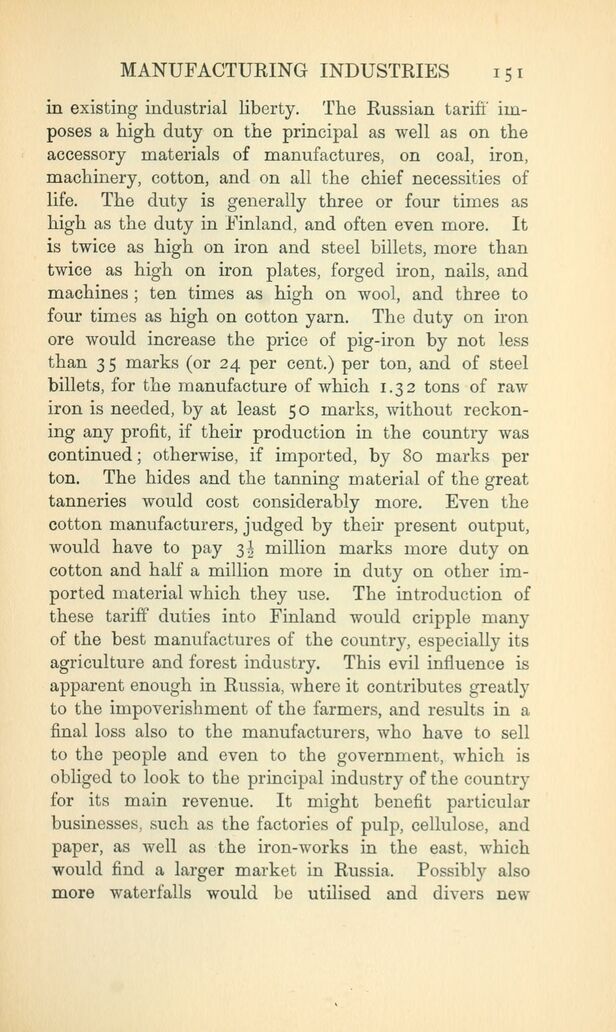
Full resolution (JPEG) - On this page / på denna sida - VI. Mining and Manufacturing Industries

<< prev. page << föreg. sida << >> nästa sida >> next page >>
Below is the raw OCR text
from the above scanned image.
Do you see an error? Proofread the page now!
Här nedan syns maskintolkade texten från faksimilbilden ovan.
Ser du något fel? Korrekturläs sidan nu!
This page has been proofread at least once.
(diff)
(history)
Denna sida har korrekturlästs minst en gång.
(skillnad)
(historik)
in existing industrial liberty. The Russian tariff
imposes a high duty on the principal as well as on the
accessory materials of manufactures, on coal, iron,
machinery, cotton, and on all the chief necessities of
life. The duty is generally three or four times as
high as the duty in Finland, and often even more. It
is twice as high on iron and steel billets, more than
twice as high on iron plates, forged iron, nails, and
machines; ten times as high on wool, and three to
four times as high on cotton yarn. The duty on iron
ore would increase the price of pig-iron by not less
than 35 marks (or 24 per cent.) per ton, and of steel
billets, for the manufacture of which 1.32 tons of raw
iron is needed, by at least 50 marks, without
reckoning any profit, if their production in the country was
continued; otherwise, if imported, by 80 marks per
ton. The hides and the tanning material of the great
tanneries would cost considerably more. Even the
cotton manufacturers, judged by their present output,
would have to pay 3½ million marks more duty on
cotton and half a million more in duty on other
imported material which they use. The introduction of
these tariff duties into Finland would cripple many
of the best manufactures of the country, especially its
agriculture and forest industry. This evil influence is
apparent enough in Russia, where it contributes greatly
to the impoverishment of the farmers, and results in a
final loss also to the manufacturers, who have to sell
to the people and even to the government, which is
obliged to look to the principal industry of the country
for its main revenue. It might benefit particular
businesses, such as the factories of pulp, cellulose, and
paper, as well as the iron-works in the east, which
would find a larger market in Russia. Possibly also
more waterfalls would be utilised and divers new
<< prev. page << föreg. sida << >> nästa sida >> next page >>